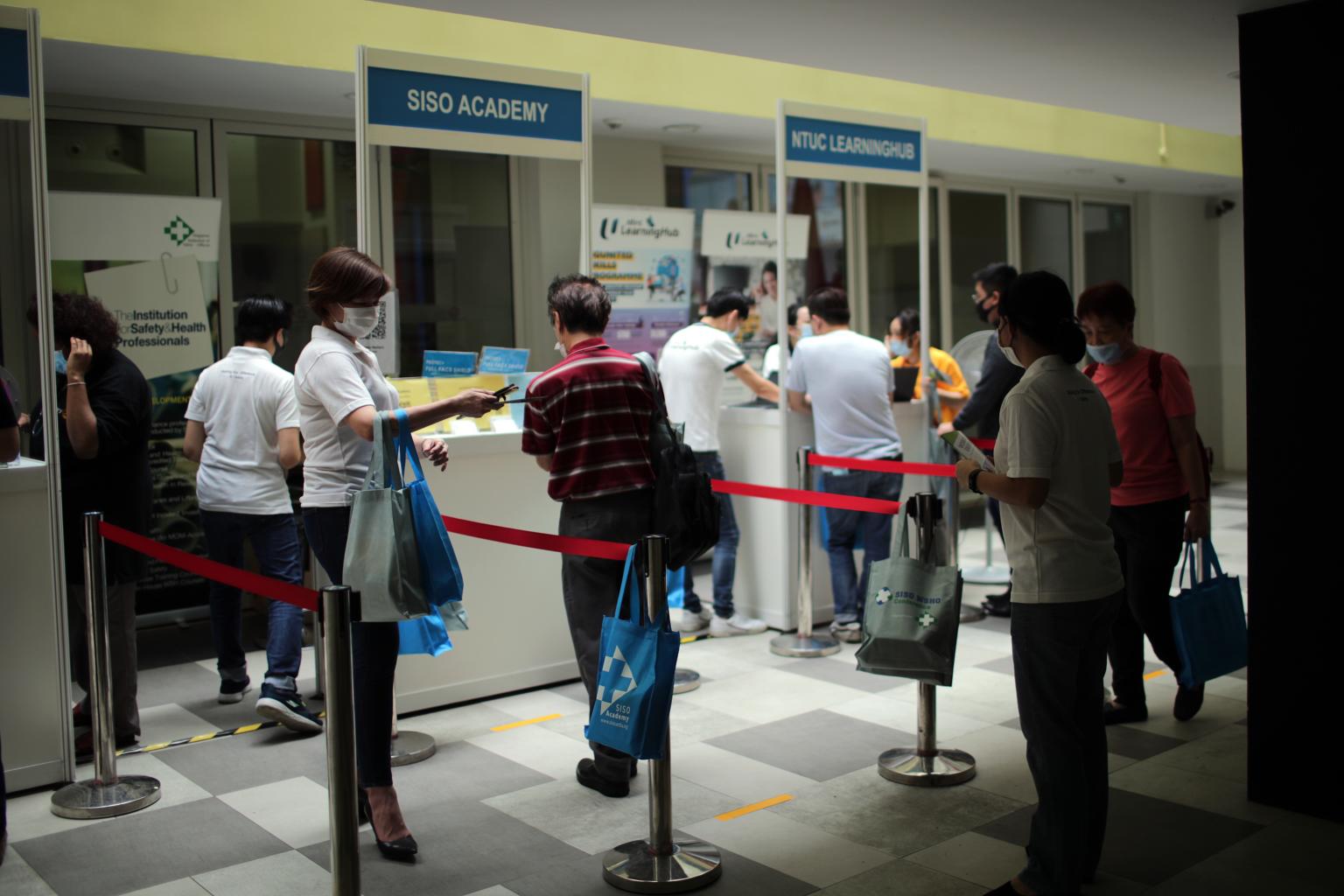Singapore's education and training sector must adapt to stay competitive globally: Chan Chun Sing
Sign up now: Get ST's newsletters delivered to your inbox

Mr Chan Chun Sing noted that Singapore has the "necessary ingredients" to continue making its mark in education.
PHOTO: ST FILE
SINGAPORE - The education sector in Singapore may be well-regarded, but it must continue to keep pace in the global market, Minister for Trade and Industry Chan Chun Sing said on Monday (Nov 2).
Speaking to the media after a virtual visit to a class at the National Institute of Early Childhood Development, Mr Chan said there are "tremendous opportunities" to relook how training and education is conducted in the industry and beyond Singapore.
He mapped out four broad changes in the education sector, which he said must evolve to remain competitive.
The first change is that learning cannot be limited to the initial 15 to 20 years of a person's life any more, said Mr Chan.
"It is no longer about just compulsory education, but it is about continuing education," he said, adding that Singapore has to find new ways of educating adult learners, which will be an increasingly important sector for the country.
Mr Chan said the second trend that Covid-19 has hastened is how learning is now not just offline, but also online.
"There are both benefits of online and offline teaching methods. The challenge for us is to make sure that we combine both methods and get the best outcome for our students," he added.
Third, schools and companies must increasingly work together, as learning must not only happen in the confines of schools and institutes of higher learning.
"Today, you will find that many more of our courses, especially adult learning courses, will have to combine classroom learning with on-the-job training with businesses," he said.
Many technology companies like Google and Facebook conduct training within their premises because "that's where the cutting edge technology and cutting edge transformation of business ideas are coming from", he added.
The last change is that it is no longer sufficient to have expertise in only one subject, said Mr Chan.
"Of course, we have to go deep," he said. But today, "we also have to equip our people with the adjacent competencies" so that job seekers will be more attractive for industry, he added.
"Many of our students will no longer just narrowly learn about accountancy, they will also deal with business development. They may even deal with legal and financial aspects of the adjacent competencies."
Mr Chan said that many education and training institutions in Singapore beyond the formal school system have adapted to these changes. "Many of them have also gone beyond Singapore, using the Singapore brand to be competitive in a very crowded, very congested international market," he said.
He noted that Singapore has the "necessary ingredients" to continue making its mark in education. These refer to the Republic's brand of quality and the trust that people have in its education and training system.
At the briefing on Monday, Manpower Minister Josephine Teo and Minister for Social and Family Development Masagos Zulkifli shared about the job opportunities in the early childhood sector, as part of a weekly jobs situation report.
Mr Masagos said the sector is doing well and is still growing in the midst of the Covid-19 crisis. About 180,000 children are enrolled today in pre-school and by 2023, this is expected to grow to 200,000.
The sector, which has a "very low" attrition rate, hires 21,000 pre-school teachers, and is still recruiting, said Mr Masagos.
"Because demand for our teachers continues to be healthy, salary increases have also been good, with about 17 per cent increase over the last three years," he said.
"This is one sector where because the framework for skills... is well-articulated.. (all in the sector) understand what they need to acquire, when they can acquire it, so that they can go up the ladder in their career," said Mr Masagos.


